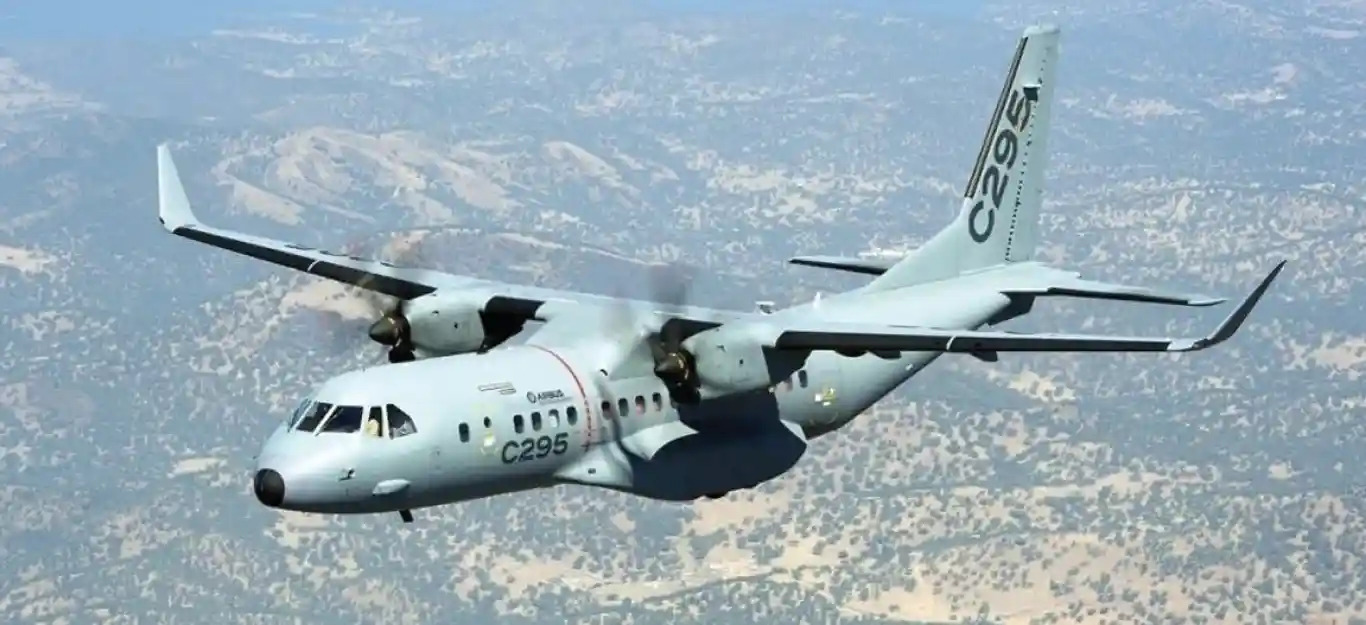India’s Prime Minister Narendra Modi and Spanish Prime Minister Pedr Sanchez will attend the official launch of India’s first state-of-the-art Final Assembly Line for the Airbus C-295 medium tactical transport aircraft. Located at Vadadora in the State of Gujarat, the new manufacturing complex is the result of an agreement signed in 2021 between Airbus Defence and Space (Airbus DS) and Tata Advanced Systems also instituting india’s first privately-built manufacturing plant for a military aircraft. Under the agreement, the indian Air Force would acquire 56 C-295s valued at nearly $3 billions with the first sixteen aircraft being produced at the Airbus facility in Seville, Spain and the remaining forty aircraft, in India.
While the first 6 of the 16 Seville-produced C-295s aircraft have already been delivered and operate under the Indian Air Force 11 Squadron at Vadadora, the new facility is expected to begin the delivery of the forty aircraft programmed to be built locally from September 2026 until August 2031. In the meantime, all the 16 aircraft built by Airbus at Seville, Spain are expected to be completely delivered by August of 2025. The C295s will replace the IAF fleet of aging HS 748 transport aircraft
While ideally positioning a modern Airbus manufacturing center in the heart of the growing Indian and Asian market, the new facility is also expected to receive most of the sustainment work covering the lifetime of the aircraft in Indian service. For now, manufacturing work is remaining the priority as the facility is expected to assemble another 12 C-295s for the Indian Navy and Coast Guards. The 12 additional aircraft are part of an order for 15 new, maritime patrol-configured C-295s issued earlier this year by India’s defense Ministry. This new order will see the first three aircraft built in Spain while the remaining 12 aircraft will be built a Vadadora.
Aiming at increasing the workshare contribution from Indian-based aerospace companies that will come into play building the C295s at the Vadadora facility, the proportion of components and structural elements produced from Indian companies will increase from 48% in the first 16 of the 40 aircraft, to 75% in the remaining 24 aircraft. Accordingly, the Electronic Warfare systems will, among others be provided by Bharat Electronics Limited and Bharat Dynamics Limited. In all some 37 india-based companies will participate in manufactruring 13,000 detailed parts per aircraft. Each aircraft normally requires assembly of 14,000 aircraft. As economic benefits realized locally, the production of the C-295 will generate 600 highly skilled jobs directly, over 3,000 indirect jobs and an additional 3,000 medium-skill employment opportunities, according to most revues.
First initiated by Construcciones Aeronáuticas SA, the Airbus C-295 design, later acquired by Airbus in 2015 has proven even more appealing to air forces than the shorter CN-235 aircraft that preceded and inspired it. Powered by two (2) PW-127G turboprop engines with 2,645 shaft horsepower each, the C295 can carry a maximum of 9.5 tonnes payload at a 700 nm range. Much smaller than a four turboprop-powered C-130, the C-295 versatility has been combined with much lowered capital and operating costs. Able to easily operate from unpaved runways, fitted with a rear loading ramp, it has proven its tactical flexibility in service for numerous air forces including Algeria, Angola, Bangladesh, Brazil, Brunei, Burkina Faso, Canada, Cayman Island, Columbia, Czech Republic, Finland, Ecuador, Egypt, Gabon, Ghana, India, Indonesia, Ireland, Ivory Coast, Kazakhstan, Kenya, Mali, Mexico, Mozambique, Myanmar, Oman, Philippines, Poland, Portugal, Saudi Arabia, Senegal, Serbia, Spain, Thailand, United Arab Emirates, Uzbekistan
In terms of program comparison, while a similar manufacturing effort regarding the C-295 has also taken place pairing Airbus to Indonesia’s PTDI Aerospace in 2011, the Tata Advanced Systems Limited deal is proving farthest reaching for India’s defense and aerospace sector as, although covering military needs, the project kas relied solely on private investment. In it, Airbus has secured a highly advantageous deal-making position that will allow it to flexibly market solutions and systems to the Indian Defense Ministry. A previous contract signed in July 2024 between Tata Advanced Systems Limited (TASL) and Airbus Helicopters for a Final Assembly Line for the H125 light helicopter had been restricted to the civilian versions.
